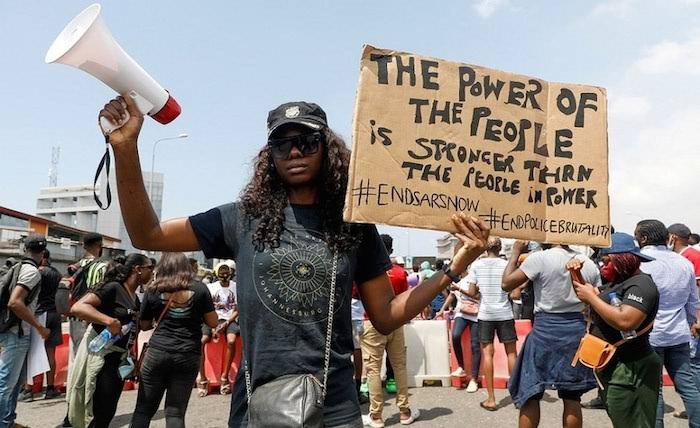The Double-Edged Sword of Protest: Weighing the Benefits and Drawbacks of Nigeria’s “End Bad Governance” Movement

By: Kolade Folarin Kadeshprince
As Nigeria’s federal government continues to engage with stakeholders across the country to dissuade young protesters from participating in the planned “End Bad Governance” protest, it is essential to weigh the pros and cons of such a movement. On one hand, protests can be a powerful tool for effecting positive change, bringing attention to pressing issues and holding those in power accountable. On the other hand, protests can also have unintended and detrimental consequences, particularly in a vulnerable society like Nigeria.
Protests have been a cornerstone of democratic movements throughout history, serving as a means for citizens to express their grievances and demand redress. In Nigeria, the current economic crisis, widespread corruption, and political instability have created a fertile ground for protests to flourish. The “End Bad Governance” movement, which is gaining momentum among young Nigerians, is seeking to bring attention to these issues and push for systemic change.
One of the most significant benefits of protests is that they can bring about tangible results. By mobilizing large numbers of people, protesters can create a sense of urgency and pressure on governments to take action. This can lead to reforms, policy changes, and even regime changes. For instance, the Arab Spring protests in Egypt led to the ousting of President Hosni Mubarak, while the Black Lives Matter movement in the United States has led to increased police accountability and calls for racial justice.
Moreover, protests can also serve as a platform for marginalized groups to raise their voices and demand representation. In Nigeria, many young people feel disenfranchised and disillusioned with the political system, feeling that their voices are not being heard. Protests can provide a safe space for them to express their frustrations and connect with like-minded individuals who share their concerns.
However, protests can also have negative consequences, particularly in a fragile society like Nigeria. One of the primary concerns is that protests can descend into violence, leading to loss of life and property damage. The 2012 Occupy Nigeria protests, which were sparked by fuel subsidies being removed by the government, ended in chaos and destruction. Similarly, the recently held #EndSARS protest turned violent in some parts of the country, resulting in casualties.
Another concern is that protests can be exploited by extremist groups or individuals with ulterior motives. In Nigeria’s fragile security environment, there are concerns that protesters could be manipulated or infiltrated by urchins and other extremist organizations.
Furthermore, protests can also have unintended consequences on vulnerable populations. For instance, during protests in Lagos State last year, thousands of small businesses were shut down, leading to economic losses for many families. Similarly, during the #EndSARS protest, some protesters looted shops and destroyed properties, causing harm to innocent bystanders.
In light of these concerns, it is understandable that the federal government is engaging with stakeholders across Nigeria to dissuade young people from participating in the planned protest. While it is important for governments to listen to the concerns of their citizens and respond accordingly, it is equally crucial that they do not stifle legitimate expressions of dissent.
To mitigate the risks associated with protests while still allowing for peaceful expression of dissent, governments could consider measures such as providing alternative channels for citizens to express their grievances and engaging in open dialogue with protesters. Additionally, civil society organizations and community leaders should work together to promote peaceful protest strategies and de-escalation techniques.
Ultimately, while protests can be a powerful tool for effecting change, they must be approached responsibly and with caution. As Nigerians prepare for the “End Bad Governance” protest, it is essential that they prioritize peace and safety while also demanding meaningful change from their leaders.










